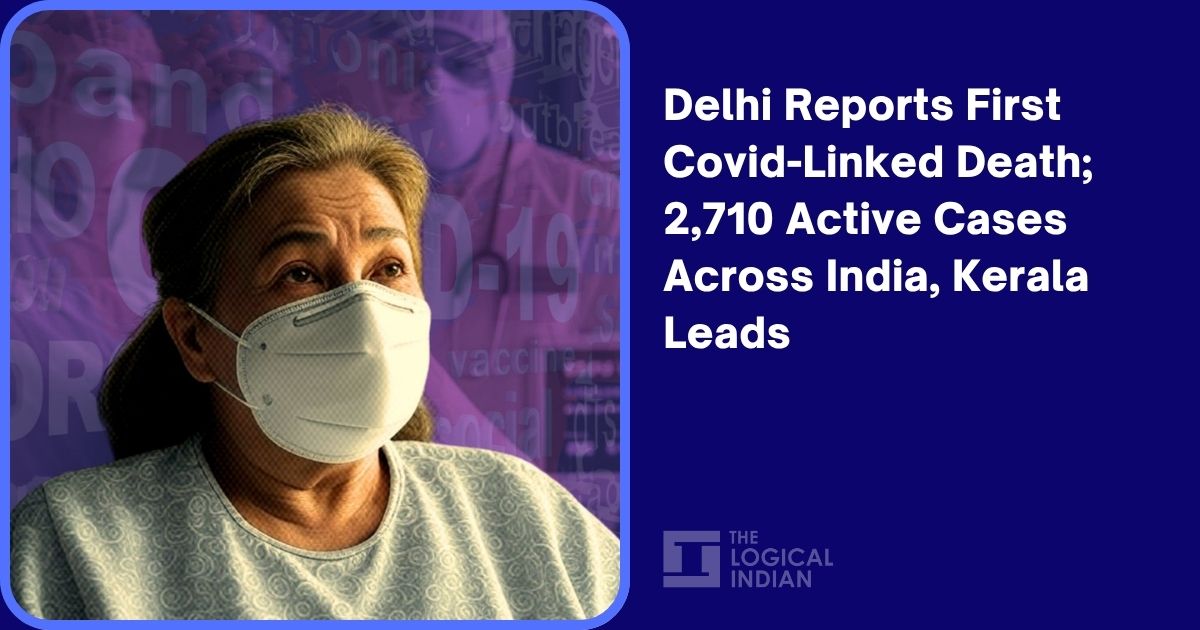India Grapples with Renewed COVID-19 Surge and Resource Scarcity
India is currently grappling with a significant resurgence in COVID-19 cases in June 2025, with active infections surpassing 4,300. This new wave of the virus, described as a return of the 'deadliest COVID-19 virus' after a period of decline, is primarily attributed to the emergence and circulation of new, fast-spreading Omicron sub-variants, notably NB.1.8.1 and LF.7, while the JN.1 strain also remains a concern in the broader Southeast Asian region. The daily number of new cases has been reported in the range of 276 to nearly 300.
In response to the escalating situation, the Union Health Ministry has issued directives to all States and Union Territories to bolster their healthcare preparedness. This includes ensuring the availability of critical resources such as medical oxygen, isolation beds, ventilators, and essential medicines in hospitals. To assess and enhance readiness, a series of mock drills have been conducted and planned. An oxygen supply systems mock drill took place on June 2, with facility-level preparedness mock drills scheduled for June 5. Furthermore, high-level technical review meetings were convened on June 2 and 3, chaired by the Director-General of Health Services (DGHS), involving representatives from the Disaster Management Cell, Emergency Management Response Cell, National Centre for Disease Control (NCDC), Indian Council of Medical Research (ICMR), Integrated Disease Surveillance Programme (IDSP), Central government hospitals in Delhi, and officials from all states and UTs to evaluate the current scenario and preparedness measures.
While many of the current COVID-19 cases are reported to be mild and self-limiting, there have been fatalities. Since January 1, 2025, 44 deaths have been reported, predominantly among individuals with pre-existing illnesses. The current surge has also seen an increase in COVID-related deaths. State and district surveillance units under the IDSP are closely monitoring Influenza-Like Illness (ILI) and Severe Acute Respiratory Illness (SARI) cases. Testing is recommended for all admitted SARI cases and 5% of ILI cases, with positive SARI samples being sent for whole genome sequencing through the ICMR VRDL network to track viral mutations.
Several states are experiencing a notable impact from this resurgence. Kerala has been consistently reporting the highest number of fresh infections, prompting its health department to issue new advisories to hospitals and healthcare workers, including directives for mock drills and adherence to revised treatment guidelines from June 2023. Maharashtra is another severely affected state, with a significant number of active cases (around 510 reported, with 16 recent positives at one point) and multiple recent fatalities, including individuals with co-morbidities such as a 55-year-old man with Cardiac arrhythmia, a 73-year-old male with multiple conditions including COVID-19 pneumonia, a 23-year-old female with Diabetes Mellitus and HTN, and a 27-year-old male with IHD and other conditions. Gujarat has also reported a rise, with over 100 new cases pushing its active tally to 461, with a mix of hospitalised and home-isolated patients, and at least one recent death. The National Capital, Delhi, is observing a continuous uptick in cases, with its total active cases reaching 457. Even the northeastern states are seeing a slight surge, with new cases reported in Sikkim, Assam, and Mizoram.
Health authorities are emphasizing the importance of public adherence to preventive measures. The public is advised to practice diligent hand hygiene and cough etiquette, and to avoid crowded places, especially when feeling unwell. Individuals experiencing acute respiratory illness should self-monitor their symptoms, which may include nasal congestion, fever, gastrointestinal issues, low-grade hypothermia, and chest discomfort. Immediate medical attention is advised if symptoms worsen. The World Health Organisation (WHO) has urged member countries to 'remain vigilant' regarding the evolving COVID-19 situation and the new variants, although it has not yet classified these variants as 'Variants of Concern' and advises against imposing travel or trade restrictions at this stage. The Union Health Ministry continues to closely monitor the situation, underscoring its commitment to public health safety through timely interventions and effective communication, as the nation confronts the challenges posed by the evolving virus.











